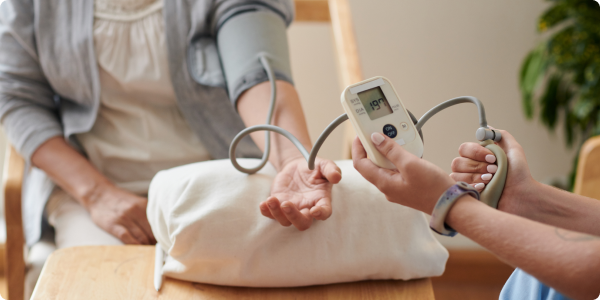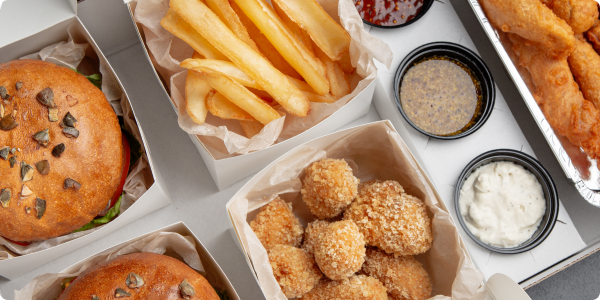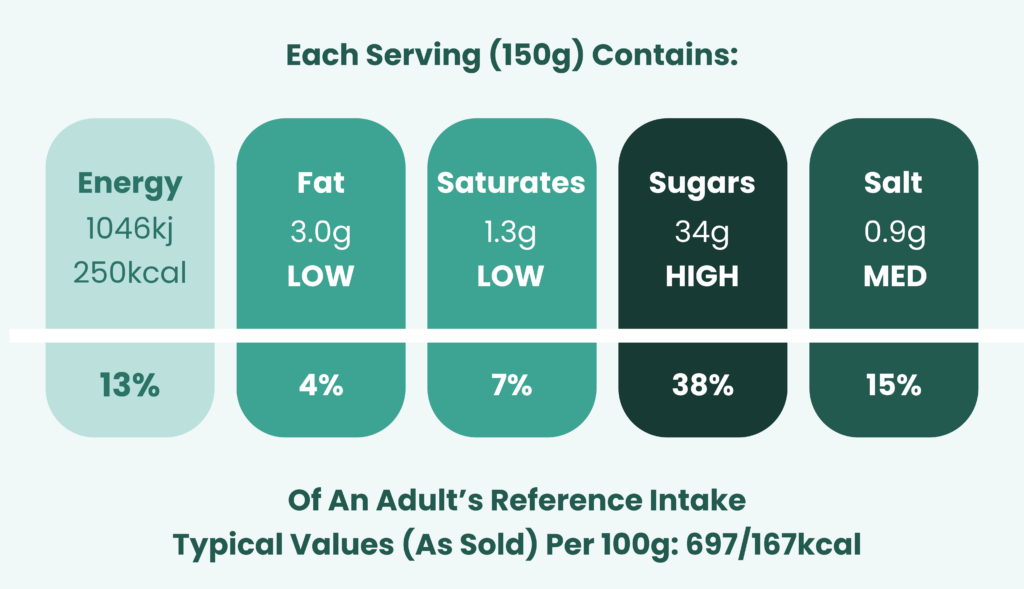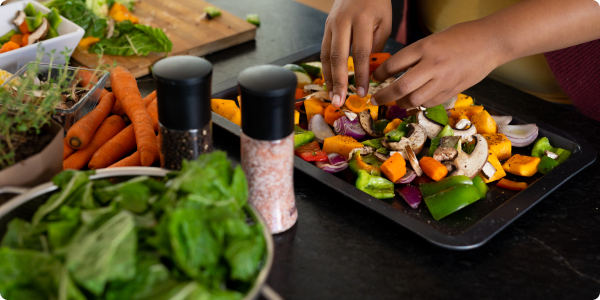
Managing high blood pressure can feel overwhelming, but it doesn’t have to be! If your GP has recently prescribed you blood pressure medications, pairing it with a compatible lifestyle can make all the difference. In this article, we’ll break down what your medication does, how food and timing impact your results and what a sustainable, heart healthy lifestyle really looks like.
The Sodium-Blood Pressure Connection: How Different Foods Affect Your Levels
Sodium is one of the biggest dietary contributors to high blood pressure. When you have too much sodium, your body retains water to balance the sodium levels in your bloodstream. This extra water enters your circulatory system, increasing the overall volume of blood. As your blood vessels stretch to accommodate this added volume, it creates more pressure against the vessel walls, raising your blood pressure. Over time, this constant strain can damage your arteries, heart, and kidneys.

Cutting down salt can be hard as it hides in many foods like:
- Processed meats (e.g. bacon, ham, sausages)
- Ready meals and takeaway food
- Canned soups and sauces
- Crisps, crackers and salted snacks
- Bread and breakfast cereals
Top Tip: Look for foods labelled “low salt” or contain less than 0.3g of sodium per 100g. It important to check the nutritional information on the packaging of foods. It will usually look like this:

Try to only eat foods where the Salt section is highlighted in green.
Replacing high-sodium items with fresh, whole ingredients can help support your medication and reduce your blood pressure over time.
Building Your Heart-Healthy Plate: Portion Control and Meal Planning
A healthy diet doesn’t mean giving up flavour or joy, it just means getting the balance right. When managing high blood pressure, the way your fill up your plate is as important as what is on it.
Meal planning can be a powerful tool to help you stick to a low salt diet conveniently. Meal planning doesn’t need to be fancy, just consistent. Prepping a few meals ahead of time each week can help you avoid last-minute takeaways or high-sodium snacks.

When it comes to what is on your plate, there is a lot of support online from the NHS to help you discover new heathier food choices. Some other recommendations include a mediterranean diet, which is one of the best researched diets for heart health. It focuses on:
- Plenty of vegetables, fruits, and whole grains
- Healthy fats like olive oil and nuts
- Lean protein sources like fish, beans, and legumes
- Low-fat dairy and moderate portions of poultry
Another important thing to consider is reducing portions of food, this can help with weight loss which can have positive impacts on blood pressure and cardiac health.
Timing Matters: When to Eat Around Your Medication Schedule
Some blood pressure medications work better when taken at specific times or with/without food. For example:
- Ramipril is usually taken once a day, ideally 30 minutes before meals.
- Amlodipine can be taken any time, but consistency matters so choose a time you’ll remember.
- Diuretics like Bendroflumethiazide should be taken in the morning, to avoid waking up during the night to urinate.

Always check the label or speak to your pharmacist to understand how to time your meals and meds. Taking them incorrectly can reduce their effectiveness or lead to unwanted side effects like dizziness or stomach upset.
Making It Work Long-Term: Practical Tips for Sustainable Blood Pressure Management
Creating long-term habits is the key to keeping your blood pressure stable. Here’s how to make it stick:
- Batch cook meals using fresh, low-salt ingredients
- Get moving, even 30 minutes of brisk walking a day helps
- Limit alcohol and try to stick to 14 units a week, spread out through the week
- Quit smoking as it significantly raises your cardiovascular risk
- Keep a blood pressure diary to track patterns
- Use your phone! Set reminders to take your pill and track your food intake using apps like myfitnesspal or the NHS food tracker
You don’t need to overhaul your lifestyle overnight. Start small, stay consistent, and speak to your GP or pharmacist if you’re unsure about anything.
Need help managing your medication?
At e-Surgery, we offer convenient online prescriptions and support for high blood pressure, plus expert advice through our ask-a-pharmacist service for support in finding the best choice for you.
Whether you’ve just started treatment or need help making it stick, we’re here to support your journey to better heart health.











